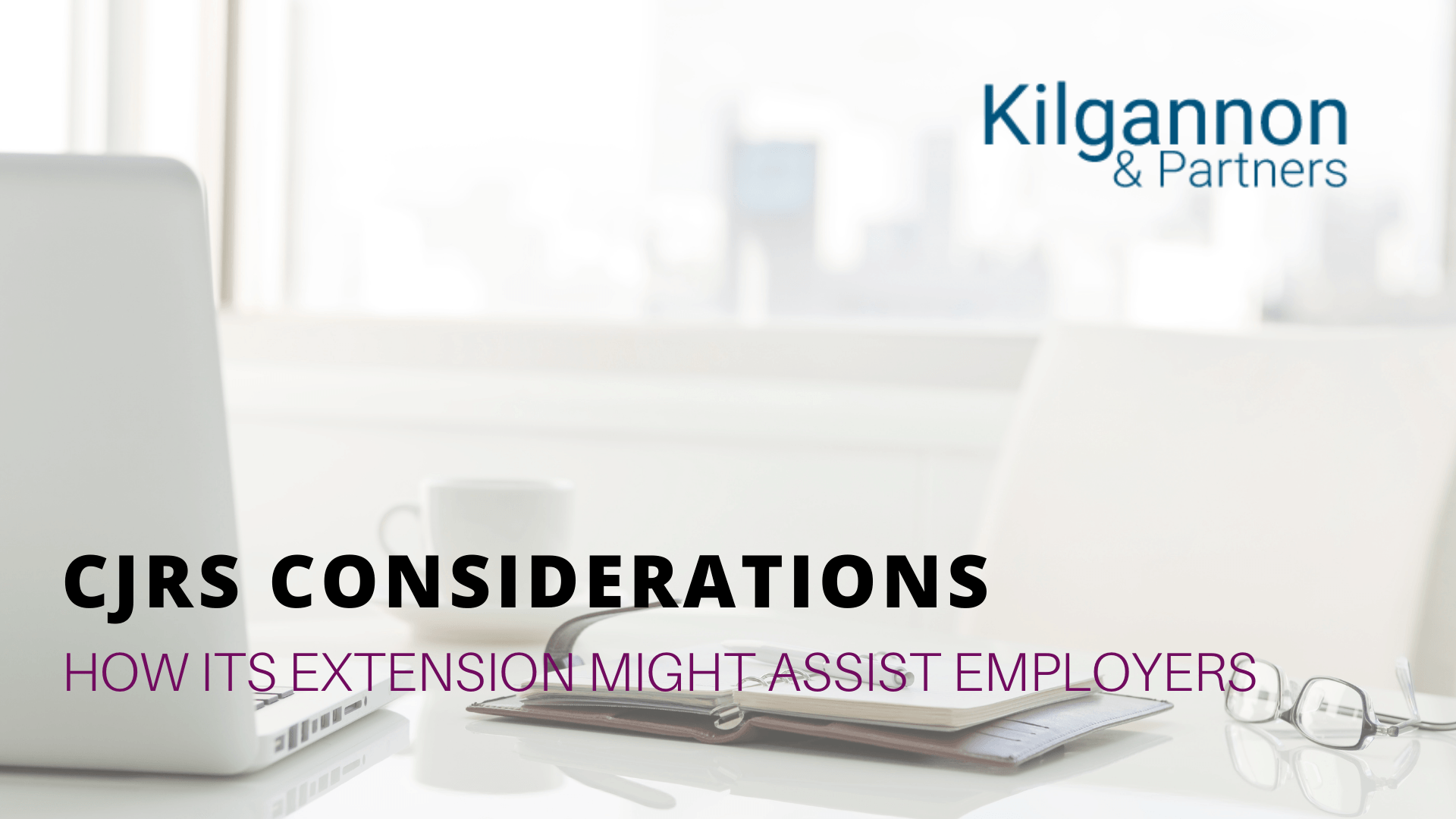CJRS Considerations
CJRS Considerations

While we continue to wait for the official government guidance (available here) to be updated to set out the rules of the extended CJRS, we have been thinking about how its extension might assist employers.
Assuming the rules remain the same as they did under the original and flexible furlough schemes, employers should think about the following:
Holiday
An area that may be overlooked by employers is holiday and holiday pay. Potentially, the extended CJRS provides an opportunity to reduce this liability.
When many employers previously brought staff back to work from furlough leave, the issue of accrued holiday pay was one they needed to look at, as holiday continues to accrue while an employee is on furlough leave.
With the extension to furlough leave, the time an employee spends on furlough leave could be used as holiday to reduce an employee’s accrued holiday.
There are specific requirements you need to meet to ensure the holiday is taken, so as to reduce the accrued holiday.
If this is not possible, employers can look at allowing staff to carry forward unused holiday into the next holiday year; this may be particularly relevant for businesses with a holiday year that ends on 31st December, as most do.
If not used (and if carried forward), accrued holiday is likely to create issues for when “normality“ returns as staff may have lots of accrued holiday meaning a business risks being short staffed just at the time it needs staff to work. Also, if staff resign or are dismissed, accrued holiday will need to be paid, so trying to reduce any accrued leave will help limit that liability.
Redundancy
One of the conditions of the job support scheme (that has now been delayed) was that employers could not claim for staff who are under consultation for redundancy.
While we do not yet know the specific rules of the extended CJRS, if they are as before, then consultation for redundancy can take place while staff are on furlough leave. Therefore, if businesses are unfortunately forced to consider redundancies the redundancy consultation can take place while the employer recovers 80% of the wages (up to £2,500 p/m).
We fully suspect that, as before, the extended CJRS money cannot be used to fund statutory redundancy payments, but it could be used to contribute towards notice money (as below) or holiday (as above).
Notice
As with redundancy, the job support scheme did not allow employers to claim if staff are under notice.
If the extended CJRS mirrors the previous scheme, then notice can be served to those staff on furlough leave and the employer can recover 80% of the cost (up to £2,500).
Please note that, with notice pay and holiday pay, the salary will need to be topped up to 100%. If an employee is on notice then you may be able to also require the employee to use their holiday while under notice, to eliminate this liability while claiming under the extended CJRS.
There may not be sufficient time to deal with redundancies and notice if the furlough scheme ends in early December, but if lockdown and the extended CJRS continue into late December it may provide an opportunity for those businesses who plan early to save significantly sums against these costs.
Vulnerable staff
We are already helping clients where their employees are pushing to be placed on furlough rather than work. Many individuals are citing that this is because they live with somebody who is vulnerable.
Our view is that the furlough scheme is not there to provide for this situation.
The opening paragraph to the government guidance makes it clear that the furlough scheme is to be used by those businesses affected by covid.
While previously there was grounds for those shielding to not work or be treated as on sick leave, those rules have been relaxed and the guidance from ACAS and the Government is that only vulnerable Individuals have protection, not people who live with them. This means that if your employee is not themselves vulnerable, they can be required to continue working.
Working from home
As before, the government is suggesting that staff should work from home where possible.
This link
(point 6) says that those who can “work effectively from home must do so“. For many businesses staff do not work “effectively” from home and, for this reason, we are seeing a number of clients continue to operate where they are not in a sector that is being forced to close.
If working from home is allowed (or required) then there will be many factors for you to consider, as are highlighted in our earlier article available here.
Whatever the final rules end up being and for however long the extended CJRS applies, it will no doubt be a welcome extension to many businesses in preference of the Job Support Scheme. It may also present opportunities for businesses to save money.
If you would like any further information or want to discuss any of these issues then please contact the writer, Emily Kidd, via
ek@kilgannonlaw.co.uk or on
01483 388 900.
Kilgannon & Partners LLP is a specialist employment law firm where our experienced employment law partners offer practical, prompt and professional employment law and HR advice.
5th November 2020. © Kilgannon & Partners LLP

The appeal judgment criticised the original tribunal’s handling of both disability and justification issues. The judgment indicates that employers making dismissals based on assessment of readiness for promotion, without the employee having carried out the work for the role above, will struggle to show that decision is

A full time employee that is over 21 will soon be earning nearly £24,000 per annum which could mean that more employees are close to the minimum wage. Having an employee working close to the minimum wage poses risks to businesses. For example, if an employee works any overtime, they may then fall below the minimum wage.








